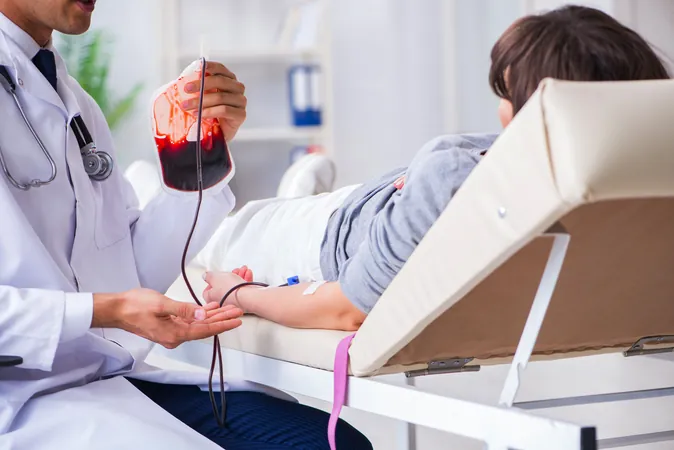
Urgent Attention Needed: The Link Between Intravenous Immunoglobulin and Life-Threatening Lung Injury
2024-09-18
Urgent Attention Needed: The Link Between Intravenous Immunoglobulin and Life-Threatening Lung Injury
Transfusion-related acute lung injury (TRALI) is an alarming, albeit rare, condition associated with the administration of intravenous immunoglobulin (IVIG). As IVIG use becomes more prevalent in healthcare systems, the need for heightened awareness among healthcare providers—particularly pharmacists and physicians—regarding this serious complication is imperative.
TRALI is characterized by acute respiratory distress and non-cardiogenic pulmonary edema, often triggered by a systemic inflammatory response that damages the delicate alveolar-capillary barrier in the lungs. The Centers for Disease Control and Prevention (CDC) and the Food and Drug Administration (FDA) have flagged TRALI as the foremost cause of transfusion-related deaths in the U.S.
Recognizing TRALI can be complicated; patients often exhibit nonspecific symptoms, and the condition has undergone various redefinitions as medical understanding has evolved. Its rarity—reported in just 0.08% to 1.12% of transfusions with only a handful of IVIG-related cases in the past three decades—further complicates timely diagnosis.
Recent case reports have highlighted the vulnerability of certain patient populations to TRALI. One notable case involved a patient undergoing rituximab treatment for multiple sclerosis, who was also suffering from long-shedding SARS-CoV-2, the virus responsible for COVID-19. This immunocompromised patient experienced persistent symptoms long after recovering from the initial viral infection.
During the treatment, following the patient's IVIG transfusion, rapid onset of fever, shivering, and tachycardia was observed. Despite being warned by healthcare staff, the patient continued the transfusion, leading to critical hypotension and respiratory failure. Medical personnel acted swiftly to terminate the IVIG administration. An immediate transfer to the intensive care unit facilitated the patient's recovery, showcasing the importance of prompt intervention.
The case underscores the updated TRALI diagnostic criteria established in 2019, which focus on the onset of symptoms within six hours post-transfusion, hypoxemia, bilateral pulmonary edema as seen in imaging studies, and absence of left atrial hypertension—criteria that were all met in this instance.
Typically, TRALI is more commonly associated with whole blood or platelet transfusions; however, instances following IVIG administration, particularly in patients with underlying conditions like neurological disorders or autoimmune diseases, are on the rise.
Healthcare providers must thoroughly assess the risk-benefit ratio when administering IVIG. While this treatment can provide critical support for patients with IgG deficiency or COVID-19, the potential for severe complications necessitates careful consideration and monitoring throughout the process.
In conclusion, while IVIG can be a lifesaving treatment, awareness of its potential to cause TRALI should remain front-of-mind for medical professionals involved in patient care. Prompt recognition and management of this condition could lead to improved outcomes and save lives.
Stay tuned for more updates on this topic and other critical health issues. Your health is our priority!


 Brasil (PT)
Brasil (PT)
 Canada (EN)
Canada (EN)
 Chile (ES)
Chile (ES)
 España (ES)
España (ES)
 France (FR)
France (FR)
 Hong Kong (EN)
Hong Kong (EN)
 Italia (IT)
Italia (IT)
 日本 (JA)
日本 (JA)
 Magyarország (HU)
Magyarország (HU)
 Norge (NO)
Norge (NO)
 Polska (PL)
Polska (PL)
 Schweiz (DE)
Schweiz (DE)
 Singapore (EN)
Singapore (EN)
 Sverige (SV)
Sverige (SV)
 Suomi (FI)
Suomi (FI)
 Türkiye (TR)
Türkiye (TR)